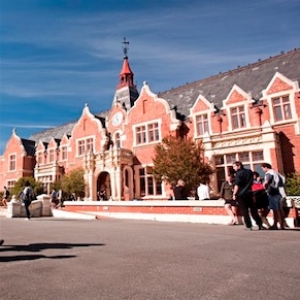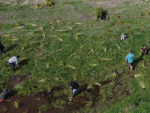YOU KNOW there is something seriously wrong with the priorities in the country’s education system when we have only 100 agricultural science graduates – compared with 120 in acupuncture – in one year. If this wasn’t so serious it would be a joke.
Ministry of Education data tell us that of the 25,000 domestic bachelor graduates in 2013, only 350 graduated in a primary sector-related discipline. Too few high-achieving school leavers take agriculture-related studies at bachelor degree level.
As a rural-economy nation, our primary sector should be the natural place for our best and brightest people. As Associate Primary Industries Minister Jo Goodhew opines on the page opposite: “We need to do more to encourage and promote the sector as an attractive and fulfilling career option for our talented young people.”
The head of Massey University’s Institute of Agriculture and Environment, Professor Peter Kemp, believes rightly that careers advisors had better be told to think it out again, i.e. cease encouraging only less ‘able’ students towards the industry, and instead change the narrative to ‘only if you are bright enough is a career in agribusiness for you’.
Channelling bright, young people towards a career in the wider, primary sector is vital to our nation’s future. Currently there are 350,000 people employed in New Zealand’s primary sector, and by 2025 this number will be closer to 400,000.
To get anywhere near achieving the Government’s goal of doubling exports by 2025, the primary industry must have the right people with the right skills. Only the best and brightest will do.
Goodhew and Kemp agree the industry’s message must emphasise that ‘doing agriculture’ doesn’t mean just farming. There’s also banking, marketing, advisory, engineering and food, to name a few. Agricultural science, farm management and agribusiness are all key fields in the primary sector.
Promotion of primary sector industry has to start in our schools – the younger the better. Goodhew is 100% right when she says: “If we want to attract talented, young people into the primary sector we need to make them, and their parents, aware of the opportunities (and salaries!) available there.”



















